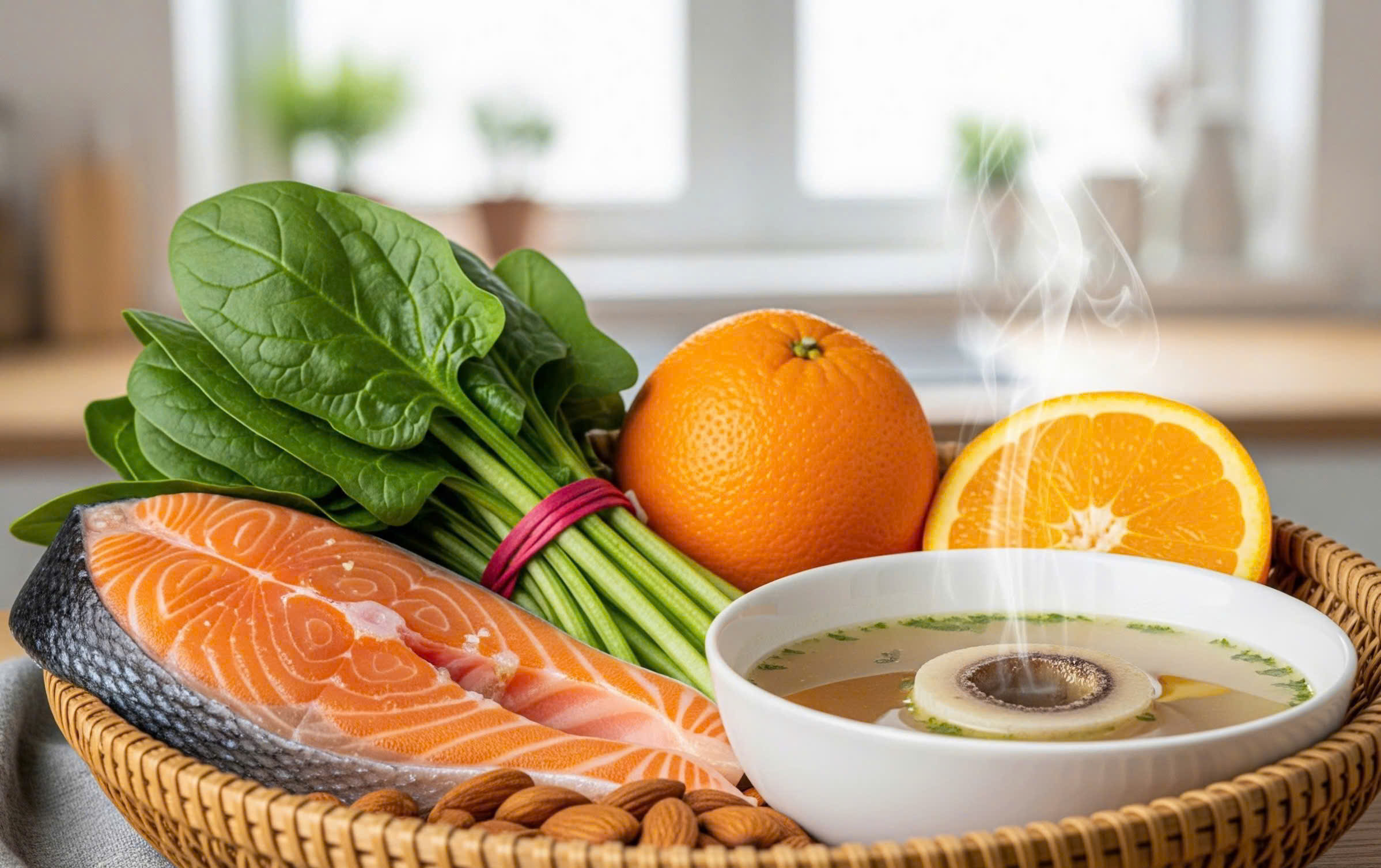Bone spurs are bony growths that develop on the vertebrae, commonly affecting older adults or those with degenerative spine conditions. Individuals with this condition require medical treatment, especially if the spurs compress nerves, causing significant pain or numbness and weakness in the extremities. Dr. Nguyen Anh Duy Tung, from the Nutrihome Nutrition Center, advises that in addition to medical treatment, attention to nutrition plays a vital role in maintaining bone and joint health, combating inflammation, protecting cartilage, and slowing disease progression.
Fatty fish, such as salmon, tuna, and sardines, are rich in omega-3 fatty acids, which have anti-inflammatory properties, reducing pain and joint stiffness and limiting damage to the soft tissues surrounding the spine. Omega-3 also maintains bone density, benefiting individuals with degenerative spine conditions or those undergoing treatment for bone spurs.
Dark green vegetables like spinach, kale, and broccoli provide calcium, vitamin K, and antioxidants. These foods help strengthen the skeletal system, slow down cartilage aging, and reduce inflammation in the compressed vertebral areas. Green vegetables also help with weight management, an important factor in reducing stress on the spine.
Fruits rich in vitamin C, such as oranges, tangerines, pineapples, guavas, and strawberries, promote collagen synthesis – the main component of cartilage and ligaments surrounding the spine. Collagen enhances disc elasticity, reducing friction between joints. Vitamin C also acts as a potent antioxidant, aiding in the repair of damaged connective tissue.
 |
Fatty fish, green vegetables, nuts, and other foods are rich in minerals that contribute to bone and joint health. Photo: Trong Nghia |
Fatty fish, green vegetables, nuts, and other foods are rich in minerals that contribute to bone and joint health. Photo: Trong Nghia
Nuts and legumes like almonds, walnuts, soybeans, and mung beans provide magnesium, calcium, and beneficial fatty acids. These nutrients maintain musculoskeletal strength, reduce muscle spasms, and alleviate pain caused by spinal nerve compression. These nuts also contain polyphenols and vitamin E, which have anti-inflammatory and cell-protective effects.
Foods rich in natural collagen, such as bone broth, fish skin, and pork trotters, provide collagen and gelatin, which enhance cartilage and disc flexibility, maintaining the spine's structural stability. However, individuals with bone spurs should consume these in moderation, avoiding dishes high in fat and salt.
According to Dr. Duy Tung, individuals with bone spurs should limit inflammatory factors such as fast food, processed meats, sugary drinks, and alcohol. Maintaining a healthy weight, engaging in light exercise, and undergoing regular health check-ups allow doctors to monitor the condition and adjust treatment plans if necessary.
Supplementing with specific natural nutrients like undenatured type 2 collagen, hydrolyzed collagen peptides, eggshell membrane, turmeric root extract, and chondroitin sulfate is beneficial for bone and joint health. These nutrients help regulate the immune system, regenerate cartilage, and prevent joint degeneration.
| Readers can submit nutrition-related questions here for doctors to answer. |












